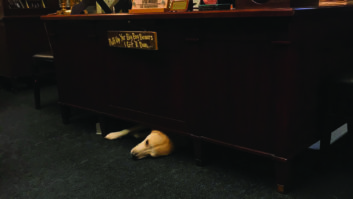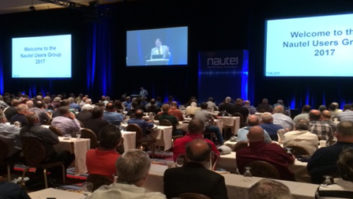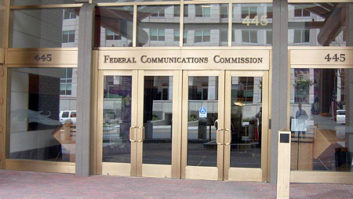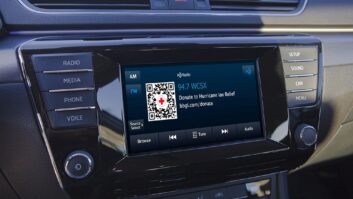Neelie Kroes says Europe’s “ecosystem of radio” must change.
Speaking before the Association Européenne des Radios (AER) in March, the European Union commissioner made a call for cooperation across the E.U. to address the digital future of radio.
Kroes, a Dutch politician who holds the title of “commissioner of digital agenda,” began her talk by referring to the historic role of radio in bringing information and entterainment to people.
“Of course, radio continues to play this role today — and much more: it has become an essential part of our cultural and information landscape. And I want radio to be at the forefront of another revolution: the digital revolution.”
While saying that it was not the role of officials in Brussels to dictate standards, Kroes said she was disturbed by the lack of consensus about standards or rollouts that is making it difficult for digital radio to prove its value.
“I think we need to do better than that in Europe. We — and that includes everyone in this room — need to do the thinking that will enable us to envisage radio’s future in Europe. I will not prejudge any issue, but nor will I accept that complacency should be our guide,” she said.
“We were not complacent about broadband when ‘dial-up’ was considered by some as ‘good enough.’ We were not complacent about mobile phones when fixed line telephones seemed to be the norm for all. And we cannot be complacent about radio’s future now.”
Kroes said that her job was help content providers “scale up” their offerings to meet the full European Union, something that cannot be done with analog radio alone.
“So, we must get to the bottom of the problems holding back the roll-out of digital radio. We must understand exactly why the legal frameworks for digital and online deployment are so disparate across Europe,” said Kroes. “We need to understand why the E.U.-wide consensus in 1986 that led to the technically impressive DAB standard has drifted to today’s inertia. Is it because digital radio is the new ‘Betamax’? Or are the differences in success between GSM for mobile and DAB and DAB+ for radio due to a more complex set of issues? I think that there is great potential for digital radio, as the U.K. and Danish experiences demonstrate.”
Kores challenged AER members — representatives of some 4,500 private and commercial broadcasters from across Europe — to think creatively about the technical, political and economic issues involved with digital radio and to help the European Union build a framework that encourages broadcasters, manufacturers and audiences to embrace digital radio.
“The ecosystem of radio must change, to the benefit of the many of us who enjoy its programs on a daily basis,” she said.












